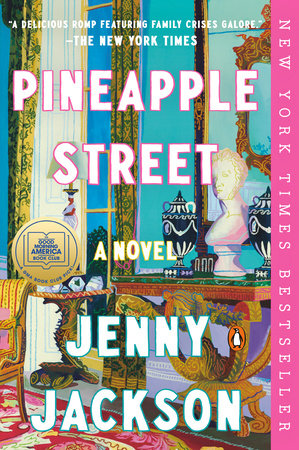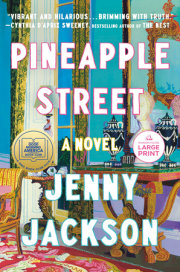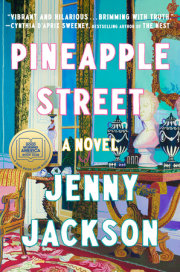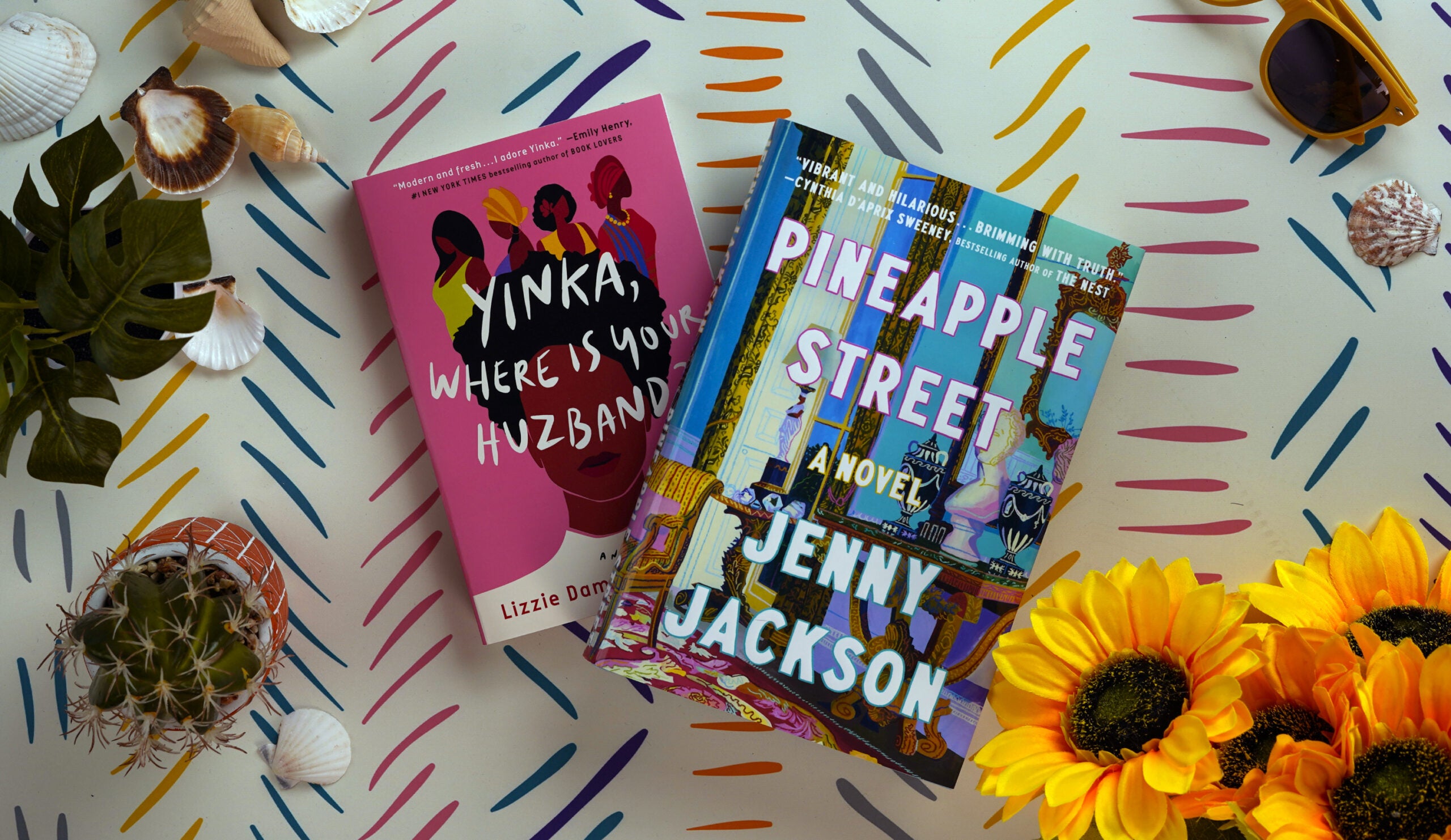Prelude
Curtis McCoy was early for his ten o’clock meeting so he carried his coffee to a table by the window, where he could feel the watery April sun. It was a Saturday, Joe Coffee was crowded, and Brooklyn Heights was alive, women in running tights pushing strollers along Hicks Street, dog walkers congregating at the benches on Pineapple Street, families dashing to soccer games, swimming lessons, birthday parties down at Jane’s Carousel.
At the next table, a mother sat with her two adult daughters, drinking from blue-and-white paper cups, peering at the same phone.
“Oh, here’s one! This guy’s profile says he likes running, making his own kimchi, and ‘dismantling capitalism.’”
Curtis tried not to listen but couldn’t help himself.
“Darley, he’s twice my age. No. Do you even understand how the app works?”
The name Darley rang a bell, but Curtis couldn’t quite place her. Brooklyn Heights was a small neighborhood, she was probably just someone he’d seen in line ordering sandwiches at Lassen, or someone he’d crossed paths with at the gym on Clark Street.
“Fine, fine. Okay, this guy says, ‘Cis male vegan seeks fellow steward of the Earth. Never eat anything with a face. Except the rich.’” “You can’t date a vegan. The footwear is ghastly!” the mother interrupted. “Give me that phone! Hmm. The whiffy here is terrible.”
“Mom, it’s pronounced ‘wai-fai.’”
Curtis risked a quick peek at the table. The three women were dressed in tennis whites, the mother a blonde with gold earrings and a notable array of rings on her fingers, the daughters both brunette, one lanky with straight hair cut to her shoulders, the other softer, with long wavy hair loosely tied in a knot. Curtis ducked his head back down and broke off a crumbly bite of poppyseed scone.
“‘Bi and nonmonogamous looking for a Commie Mommy to help me smash the patriarchy. Hit me up to go dancing!’ Am I having a stroke?” the older woman murmured. “I don’t understand a word of this.”
Curtis fought back a snicker.
“Mom, give me the phone.” The wavy-haired daughter snatched back the iPhone and tossed it in her bag.
With a start Curtis realized he knew her. It was Georgiana Stockton; she had been in his high school class at Henry Street ten years ago. He contemplated saying hello, but then it would be obvious he’d overheard their entire conversation.
“In my day, things were so much simpler,” Georgiana’s mother tutted. “You just went out with your deb ball escort or maybe your brother’s roommate from Princeton.”
“Right, Mom, but people my generation aren’t giant elitist snobs,” Georgiana said and rolled her eyes.
Curtis smiled to himself. He could imagine having the same exact conversation with his own mother, trying to explain why he wasn’t going to marry her friend’s daughter just because they owned adjoining properties on Martha’s Vineyard. As Curtis watched Georgiana out of the corner of his eye, she suddenly jumped up from her chair.
“Oh, no! I left my Cartier bracelet in Lena’s BMW and she’s leaving soon for her grandmother’s house in Southampton!”
Georgiana tossed her bag over her shoulder, grabbed her tennis racket off the floor, planted quick kisses on both her mother and sister, and clattered past Curtis to the door. As she swept by, her tennis racket banged Curtis’s table, sloshing his coffee, dousing his poppyseed scone, and leaving him frowning in her wake.
One
Sasha
There was a room in Sasha’s house that was a portal to another dimension, and that dimension was 1997. Here, Sasha discovered an egg-shaped iMac computer with a blue plastic shell, a ski jacket with a stack of hardened paper lift tags still affixed to the zipper, a wrinkled pile of airline boarding passes, and a one-hitter with an old yellow lighter hidden in the back of a drawer. Every time Sasha mentioned to her husband that she’d love to put her sister-in-law’s high school ephemera in a box, he rolled his eyes and told her to be patient. “She’ll get her stuff when she has time.” But Sasha had her doubts, and it was weird living in a home where one bedroom was entirely closed off, like a preserved shrine to a lost child.
On good days, Sasha could acknowledge how incredibly lucky she was to live in her house. It was a four-story Brooklyn limestone, a massive, formal palace that could have held ten of the one-bedroom apartments Sasha had lived in before. But on bad days, Sasha felt she was living in a time capsule, the home her husband had grown up in and never left, filled with his memories, his childhood stories, but mostly his family’s shit.
When Sasha and Cord had been in the house for three weeks, Sasha invited her in-laws to dinner. “I’ll make mushroom tarts and a goat cheese salad,” she said in the email. She spent all morning rolling pie dough and even walked to the fancy market on Montague for pomegranate seeds to sprinkle over baby lettuces. She vacuumed the dining room, dusted the bookshelves, and put a Sancerre in the fridge. When her in-laws arrived, they had three L.L.Bean canvas bags in tow. “Oh, you didn’t have to bring any- thing!” Sasha exclaimed, dismayed.
“Sasha,” her mother-in-law trilled, opening the closet to hang her Chanel bouclé jacket. “We can’t wait to hear all about your honeymoon.” She carried the bags into the kitchen and proceeded to pull out a bottle of white Burgundy, two flower arrangements in low vases, a tablecloth with fleurs-de-lis on it, and three scalloped Williams Sonoma baking dishes with lids. She lined them up on the counter and, like a woman at home in her kitchen of forty years, opened up the cabinet to take down a glass for her wine.
“I’ve made mushroom tarts,” Sasha tried, suddenly feeling like the lady at the Costco free sample table, trying to sell warm cubes of processed cheese.
“Oh, I saw in your email, darling. I gathered that meant it was a French-themed dinner. You just let me know when you’re ten minutes away and I’ll pop my coq au vin in the oven. I also have endives Provençal, and I brought plenty, so we might not need your salad. The candlesticks are in the drawer there, now let’s go take a look at your tabletop arrangement and I’ll see what else we need.”
Out of solidarity, Cord ate the tart and the salad, but when Sasha caught him looking longingly at the endives, she gave him a thin smile that said, “You can eat the damned vegetables, but you might have to sleep on the couch.”
Copyright © 2023 by Jenny Jackson. All rights reserved. No part of this excerpt may be reproduced or reprinted without permission in writing from the publisher.







